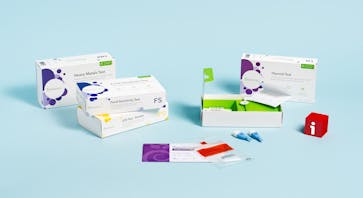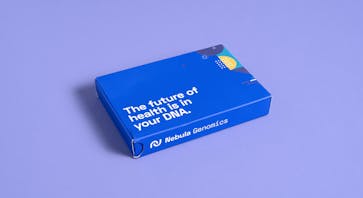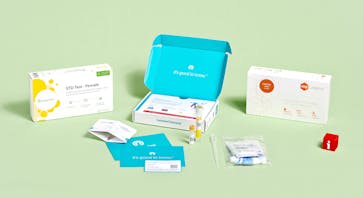COMPANIES

Our 2024 expert review of myLAB Box evaluates the company’s accuracy, speed, cost, discounts, and more.

Our 2024 expert review evaluates Everlywell’s test accuracy, speed, cost, and customer support.

Our 2024 review of LetsGetChecked analyzes its testing options, speed, pricing, privacy, accuracy, and more.
DIGESTIVE

Our experts reveal the best gut microbiome testing options and tell you everything you need to know to choose a test.

Our guide to the best food sensitivity, allergy, and intolerance tests looks at cost, accuracy, speed, and more.

Are Viome’s gut microbiome tests right for you? Read our reviews first! Plus get a discount code for $110 off your order.

Ombre Review: Ombre's microbiome testing and probiotics
Along with probiotics, Ombre offers microbiome tests and personalized recommendations. Read our 2024 review.DNA

Our 2024 review covers everything about the top DNA health tests, such as cost, accuracy, privacy, and more.

Our 2024 review of MyToolbox Genomics DNA and epigenetics tests can help you decide if they’re right for you.

Is whole-genome DNA testing from Nebula Genomics legit? Our 2024 expert review covers all of the pros and cons.

SelfDecode Reviews
Our 2024 SelfDecode reviews give all the details about the DNA test, subscriptions and reports, plus a special discount.
Genetic Testing FAQ: Everything you need to know
Have questions about genetic testing, how DNA tests work, or what testing can tell you? Check out our FAQ.
Protecting Your Privacy
Learn about the Privacy Risks associated with DNA Testing. Our Experts offer 5 Recommendations New Test Takers can take to Protect their Privacy.STDS

Our experts review everything you need to know about STDcheck, including privacy, costs, accuracy, and more.

With our 2024 expert breakdown of cost, accuracy, speed and more, find the best at home herpes test for you.

Find the best STD test for you — one that is private, safe, and reliable. We tried testing kits from all major companies.

Top 7 Ways to Protect Yourself from STDs
Not all STDs are curable. When it comes to STDs and STIs, by far the best strategy is prevention. Here’s how to protect yourself.OTHER HEALTH TESTS

Our 2024 Mira review tells you all the details about this at-home fertility tracker — accuracy, quality, pricing and discounts.

Our 2024 Modern Fertility expert review shares everything you need to know about this at-home fertility test.

Whether you’re trying to conceive or just curious, read our guide for the best at home fertility test in 2024.

Best Online Hearing Test: Choosing the right one for you
Learn about the important features and differences of online hearing tests to find the best one for you in 2024.
Best At-Home Kidney Test
Our 2024 expert review of the best at-home kidney tests looks at cost, ease of use, speed, accuracy, and more.
Best At Home Testosterone Test
Learn about the best at home testosterone test kits in 2024 by cost, accuracy, and more.
Best Metabolism Test: Your guide to at-home metabolic testing
Is a Metabolism Test right for you? Our experts will tell you everything you need to know about metabolic testing!
The Best At-Home Thyroid Test
Our review of at-home thyroid tests explains the thyroid gland, hormones, testing, the best brands, and more.








